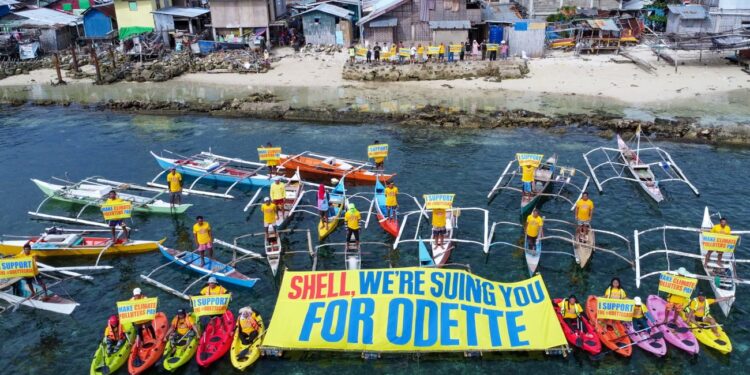A group of Filipino typhoon survivors has announced plans to take legal action against oil giant Shell, accusing the company of contributing to climate change that has intensified deadly storms across the Philippines. The case marks one of the most significant climate accountability efforts to emerge from Southeast Asia.
Seeking justice after years of devastation
The plaintiffs—survivors of Typhoon Haiyan and more recent disasters—say they are seeking compensation and accountability for the loss of lives, homes, and livelihoods caused by increasingly powerful storms. Backed by environmental lawyers and advocacy groups, the claim argues that Shell’s long history of fossil fuel production and alleged misinformation about climate risks make it partly responsible for the escalating destruction.
“We are now fighting back,” said a spokesperson for the group. “For years, our communities have been rebuilding again and again. Those who profited from pollution must now answer for it.”
Typhoon Haiyan, which struck in 2013, remains one of the strongest tropical cyclones ever recorded, killing more than 6,000 people. Since then, the Philippines has faced dozens of severe weather events each year, a pattern scientists say is being intensified by warming oceans and changing climate dynamics.
Shell’s response and global context
Shell said it recognises the need to address climate change but denied direct responsibility for specific weather events. The company pointed to its investments in renewable energy and carbon-reduction technologies, insisting that the transition to clean energy must be “collective and global.”
However, climate campaigners argue that oil majors such as Shell knew the potential harm of fossil fuel emissions decades ago yet continued to expand production. The Philippines lawsuit, they say, adds to growing global pressure for corporations to face legal and financial consequences for climate-related damage.
Legal and moral precedent
The case follows a 2021 ruling by the Dutch court ordering Shell to cut its global carbon emissions by 45 percent by 2030. Activists in the Philippines believe their lawsuit could build on that precedent, potentially inspiring similar actions across Asia and the Pacific, where climate impacts are most severe.
Environmental groups supporting the claim say the legal battle is as much moral as financial. “This is about justice,” said one lawyer involved in the case. “Those least responsible for global warming are suffering the most. The law must recognise that imbalance.”
A fight that could reshape corporate accountability
If successful, the lawsuit could redefine how multinational energy firms are held liable for the human cost of climate change. It may also embolden other vulnerable nations to pursue similar claims against fossil fuel producers.
For the survivors, however, the message is simpler. “We don’t want pity,” one said. “We want accountability—and we want our children to have a future.”
Newshub Editorial in Asia – 23 October 2025




Recent Comments